Georgetown students from around the world are returning to the hilltop this week, all with one thing on their mind: the future. As a new school year commences, it opens up new possibilities. Georgetown students have seemingly unlimited options in classes, clubs, and careers and no two students’ paths look exactly the same. The Voice sat down with 4 students, each at different points in their Georgetown careers. They all had different perspectives and experiences to offer, but the sentiment that each expressed was the same: their paths through Georgetown were impossible to predict.
Joe Luther
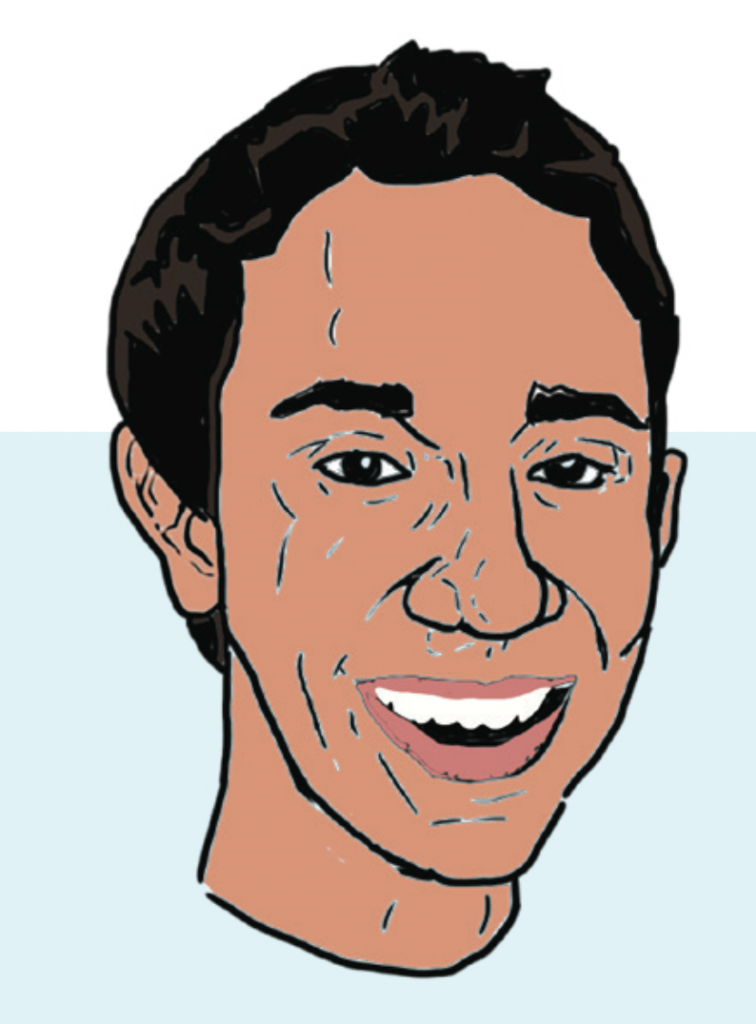 Joe Luther (COL ‘16) entered Georgetown unsure of what he wanted from college and of what the university could offer him. During his first few years he became a member of Georgetown’s Improv Team and the editor-in-chief of The Georgetown Heckler. After running what started as a satirical campaign, Luther was elected as the president of Georgetown University Student Association.
Joe Luther (COL ‘16) entered Georgetown unsure of what he wanted from college and of what the university could offer him. During his first few years he became a member of Georgetown’s Improv Team and the editor-in-chief of The Georgetown Heckler. After running what started as a satirical campaign, Luther was elected as the president of Georgetown University Student Association.
Voice: What were your plans when you entered Georgetown? Did you have any idea of what you wanted to do? Was comedy always something you wanted to be a part of?
Luther: I didn’t have a lot of concrete plans coming into Georgetown. I was undeclared in the college with a vague desire to be a psych major … I had no idea about what kind of opportunities there were for comedy at Georgetown. I vaguely dabbled in comedy in my high school newspaper and didn’t know Georgetown had an improv team before coming here. I found them at the SAC fair and some people encouraged me to try out so I just went for it. The auditions themselves are some of my favorite memories from freshman year and it was a great experience from the beginning. I found out about the Heckler around that time too, but put off on applying for it because I didn’t want to overload my freshman self. I finally went for it when I had some time during winter break sophomore year and I loved it and never looked back. Around the second semester of sophomore year, comedy started to be my main thing at Georgetown and I saw that there was a huge potential for the Heckler.
Voice: What was your turning point? What motivated you to run for GUSA?
Luther: I was only motivated to run as a kind of physical embodiment of the Heckler. The Heckler really picked up in the spring of 2014 when we made a push to lampoon the GUSA elections and being in the race could take that satire to the next level. The Heckler‘s popularity during the fall of 2014 blew me away and I thought that people would be receptive to a similar style in campaigning. We discussed some other options for satirizing this election season within the Heckler staff but ultimately decided that a satirical campaign would be the way to go.
Voice: How have you adjusted from the comedy scene to student government?
Luther: The first month was pretty challenging as we had a steep learning curve and were in a completely different environment compared to the Heckler’s writer’s room. There were plenty of people, policy and procedures we weren’t familiar with. It wasn’t necessarily easy at first but Connor and I have gotten the swing of things. I am definitely more boring now. My homepage is www.bureaucracy.com and I say an average of ten meaningless buzzwords per hour.
Voice: What advice would you give to incoming freshman?
Luther: I think the best advice I have for freshman is be flexible. I think it’s a mistake to think that one club will make or break your Georgetown experience and I think it’s also important not to irreversibly latch on to the first thing you find. Keep an open mind and say yes to things and you never know where you’ll find yourself.
Ann Yang & Phil Wong
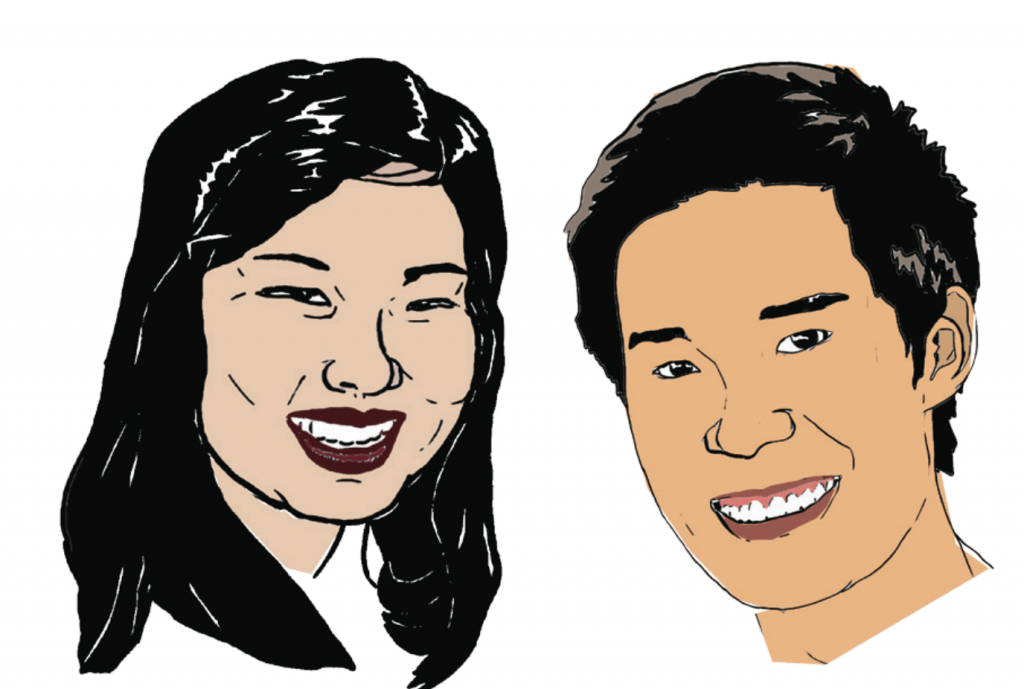 Phil Wong (SFS ‘15) arrived at Georgetown considering pursuing a tech-related career. He even considered transferring to a more technical institute. Ann Yang (SFS ‘16), on the other hand, transferred from a small liberal arts college to Georgetown. She had been on track to go into academia or political theory. They are now the co-founders of the start-up Misfit Juicery, which takes produce designated for waste and uses it to make juice. The company has 21 locations around Washington D.C, including some on Georgetown’s campus.
Phil Wong (SFS ‘15) arrived at Georgetown considering pursuing a tech-related career. He even considered transferring to a more technical institute. Ann Yang (SFS ‘16), on the other hand, transferred from a small liberal arts college to Georgetown. She had been on track to go into academia or political theory. They are now the co-founders of the start-up Misfit Juicery, which takes produce designated for waste and uses it to make juice. The company has 21 locations around Washington D.C, including some on Georgetown’s campus.
Voice: Can you describe your impressions of your first year at Georgetown?
Yang: My impression was that the pre-professionalism was a little bit of a monolith, certainly relative to my experiences at a liberal arts school. Both in the classroom and outside of the classroom, what really shocked me was that there was such an emphasis on extra-curriculars at Georgetown, and academics was almost a base-point …When you come to Georgetown, it’s very hard to be aware of any other types of careers because your exposure is mainly to those two fields because of the largesse of their recruitment budgets. I tried to come to terms with the idea that everyone was doing that, and I wasn’t really sure if I wanted to do that. I was fighting for exposure to other types of things.
Wong: My takeaways from freshman year were that over involvement was very real, and I was a part of it. I had a bunch of extracurriculars and I was exhausted by the end of freshman year. To be honest, going into sophomore year was much of the same. It wasn’t until I stopped rowing that I actually had some room to breathe. What was really formative for me was going abroad the summer after my sophomore year through GU Impacts. I went to Rwanda and then I studied abroad in Senegal. That six month period really got me outside of my Georgetown norms and the trappings of my habits and normal thought processes.
Voice: When did you guys come up with the idea for Misfit?
Wong: It was definitely a slow-burning and non-linear process to get to where we are…Ann and I were really interested in food for a while. I think that my interest was in the waste side, so I was very interested, for example, in the ways that people would use human waste to generate energy, like methane in landfills. Going to Senegal was monumental for me because food waste is not as much of an issue there because the consumption levels aren’t as high. That set in motion this crazy train that is Misfit.
Yang: I’ve always had an interest in local food economies, but at the time I was really interested in urban issues and how they were involved in gender, class, and race, which is something that you really focus on in CULP.
Voice: Do you have any advice for incoming freshmen?
Yang: I think that when you’re in college, you’re kind of in this hyper-intense environment where you’re always near your best friends and everyone’s aware of what’s going on on campus and who’s doing what and who’s in what club, so I think that there’s a fear about doing something that’s not fully iterated into its full idea, and I think that prevents a lot of people from doing things … In reality, a lot of what you can’t figure can’t really happen until you’re in the beginning phases.
I had a really rough transition to Georgetown, and I think that a lot of people come here and they really love it, but it takes a lot of people a couple of years to come here and really find their foothold, and I think that the first year of college makes you feel like the only person who doesn’t feel awesome about it. There’s an adjustment period where no one wants to be the person who isn’t loving their college experience so there’s a tendency to hide the growing pains … I love Georgetown, but I had a hard time getting to that point.
Wong: A lot of people come to college without a clear cut passion and they sell for something that they could learn to love, but in honesty, they really don’t. Immersing yourself in that uncertainty of the situation is really valuable in college. Exploration is truly that: You don’t have to have an end goal in mind. It’s a privilege to be a university student, so take advantage of that to the best of your ability. There are communities of anything at Georgetown. They may be smaller than other schools, but there are people of all kinds at Georgetown, and that’s a really cool thing. I really think that the ethos of social justice is something that has really struck me as unique, and it makes me really happy that I didn’t transfer anywhere because of that.
Eleanor Fanto
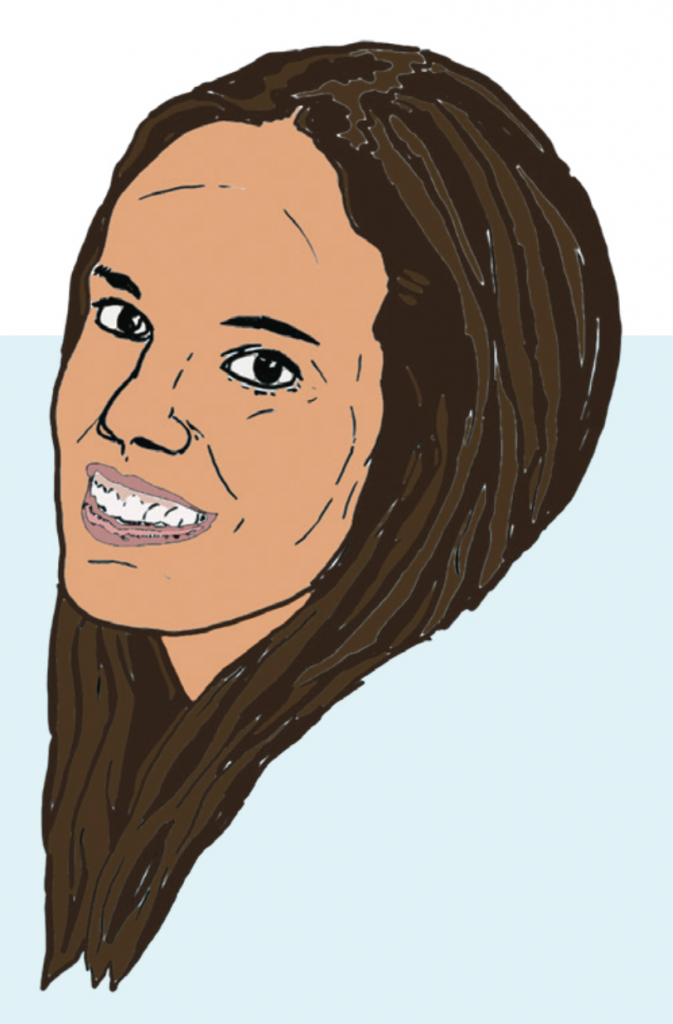 Eleanor Fanto (COL ‘17) applied to Georgetown as a Spanish major. She had always been passionate about languages, but wanted to take biology classes even though the sciences intimidated her. She switched her major from Spanish to Biology, and then later to Psychology.
Eleanor Fanto (COL ‘17) applied to Georgetown as a Spanish major. She had always been passionate about languages, but wanted to take biology classes even though the sciences intimidated her. She switched her major from Spanish to Biology, and then later to Psychology.
Voice: What your goals were when you came into freshman year at Georgetown?
Fanto: I applied as a Spanish major. I wanted to pursue foreign language because I was very passionate about that in high school. I was not a science person at all in high school, I was actually kind of scared of it I took AP Bio my senior year and I really loved it, and I really loved biology. I came into Georgetown thinking I was going to stick with Spanish but then try to do some biology.
Voice: Did you have any experiences freshman year that began to change the way you looked at your academic career?
Fanto: Yes, definitely. In my freshman year, I took Foundations I of Biology, which is the biology course for majors, and I loved it. I switched my major from Spanish to Bio in October of my freshman year.
Voice: What catalyzed the change? Was it taking Foundations of Bio or was it something outside of the classroom?
Fanto: It was the combination of being in a new environment, because in high school I was not a science person, I completely pegged myself as not that kind of person and I was in a new place where no one knew what kind of student I was, and that made me confident to try something new, and I also had a great professor in Foundations of Bio. It was definitely those two things.
Voice: What have been some of the challenges you’ve faced?
Fanto: I changed my major a third time. Bio was very challenging. I loved it, and I had a great time my freshman year, but the other students in those classes were science students in high school so they’d been taking those types of classes in the subject, so being the new kid was very challenging for me. My sophomore year, I had already been interested in the brain, so I made the transition to Psychology because it made sense for me intellectually. I went from Spanish to Bio to Psych.
Voice: So did you see yourself in this position when you entered Georgetown?
Fanto: Absolutely not.
Voice: Do you have some advice for incoming freshman?
Fanto: Be confident to reinvent yourself. Just because you were a certain kind of student or studied a certain kind of thing in high school doesn’t mean anything. You can do whatever you want at Georgetown.
Illustrations: Dylan Cutler


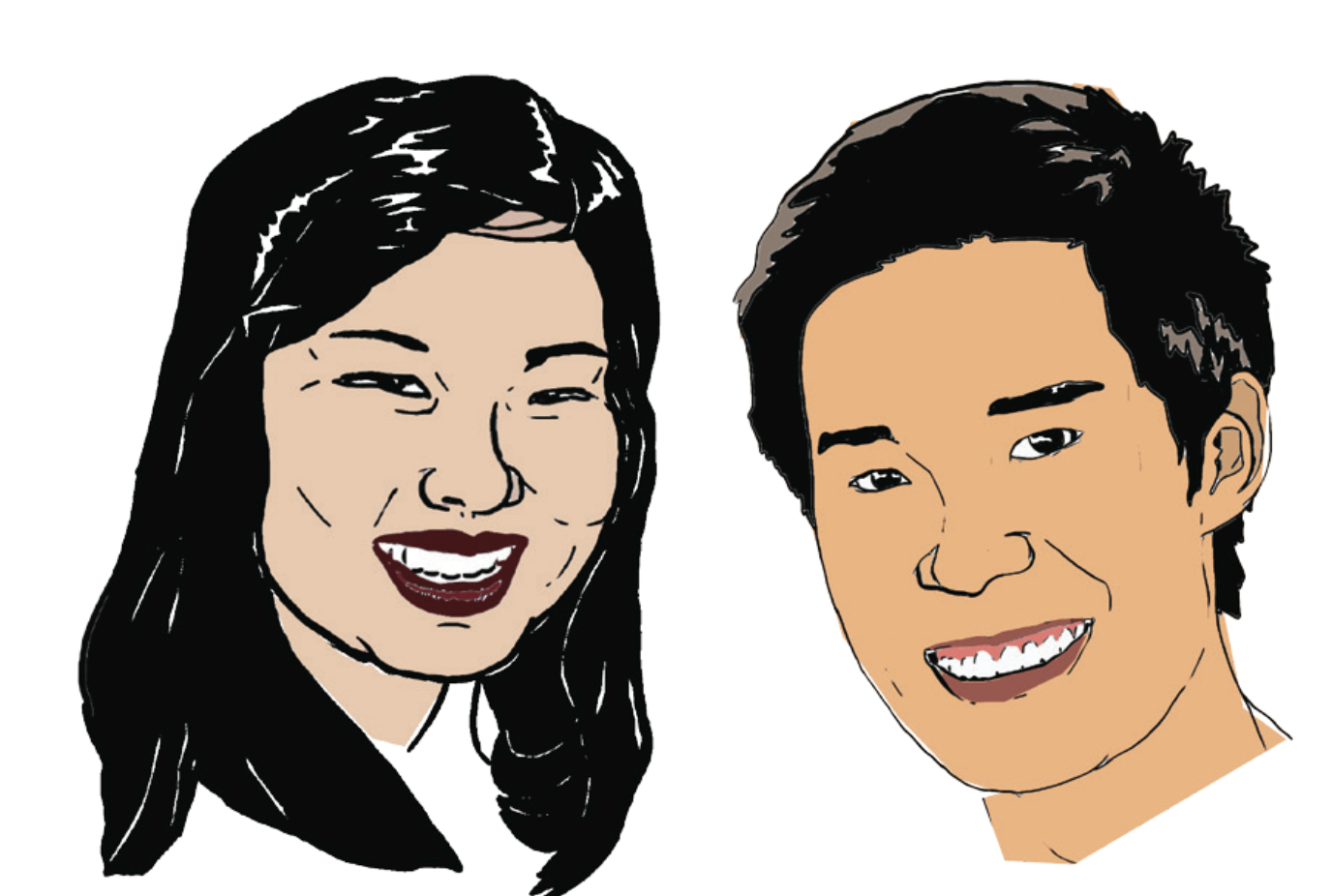

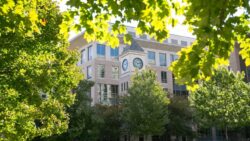

I wanted to thank you for providing a platform for students to talk about their changing paths and perspectives. So often students are hearing other narratives — that they should have it all figured out as soon as possible or that indecision or open-mindedness is a bad thing — and I really appreciated the thoughtful questions you asked and of course Ann, Phil, Joe and Eleanor’s responses.
In my work as a career counselor, I find myself drawing quite a bit on theories of career development (Planned Happenstance and Chaos Theory of Careers) that encourage students to, as Phil said so well, ‘”[immerse themselves] in that uncertainty of the situation,” remain flexible, and have the courage to change course if need be (loosely quoting Joe and Eleanor here!). And yes, Ann, some finance and consulting companies’ budgets, as well as their early and clearly structured timelines, can be very influential as students consider what’s out there. We’re fighting to expose students to other things, too, although I know we can always be doing a better job of that.
Thanks for working to change the narrative on campus. Know that the folks in the Career Center agree with you whole-heartedly.